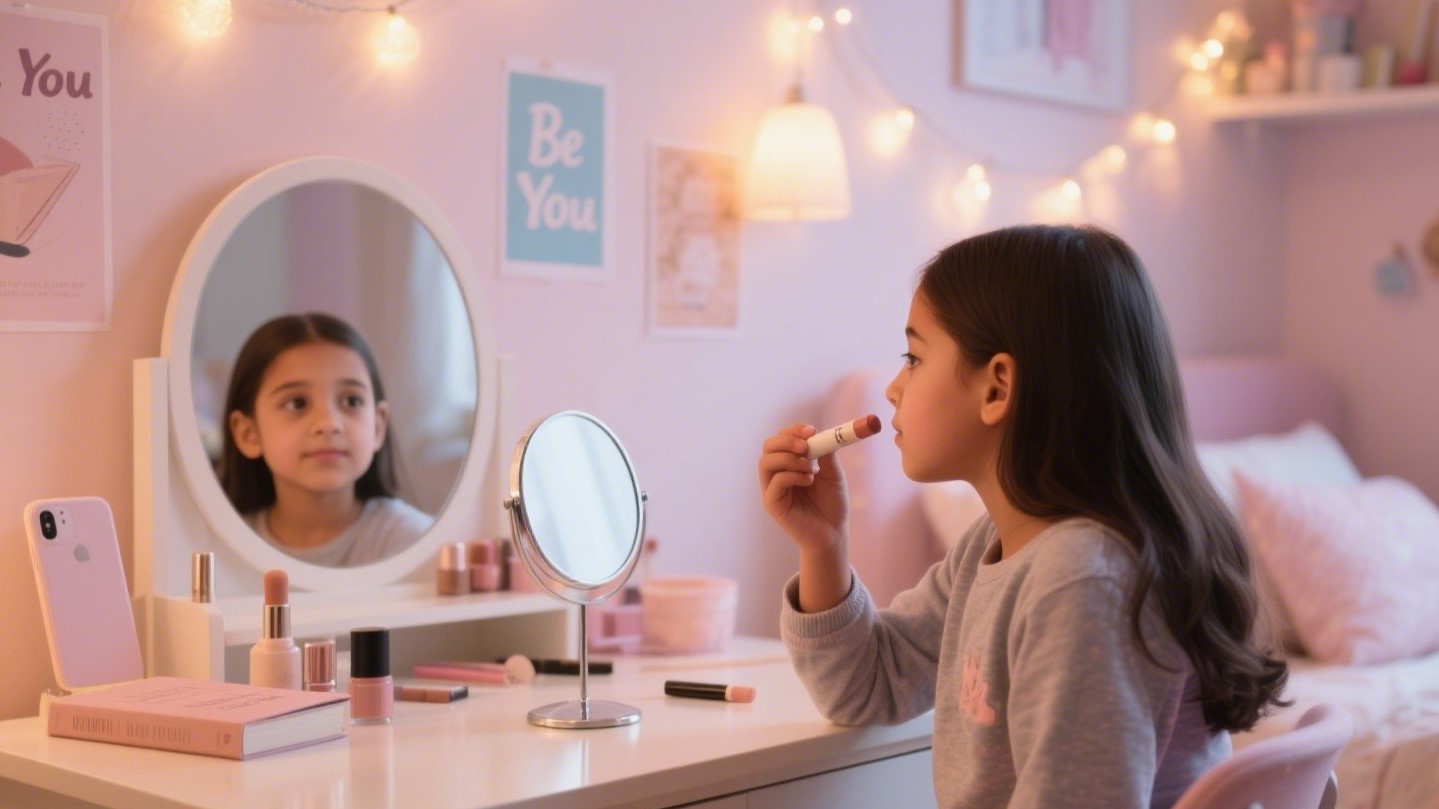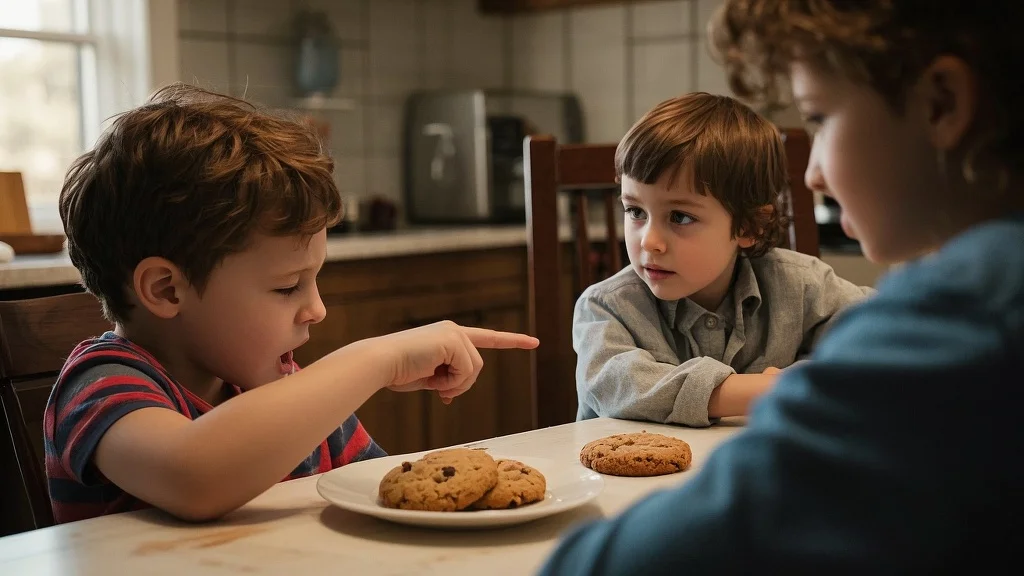At just 12 years old, Lavanya Banerjee eagerly places an order on Zepto—but not for snacks or stationery. She’s buying a concealer. Standing near the front door, glued to her phone screen, she waits for the delivery notification to pop up. The moment it does, she races down the stairs to collect her long-awaited item.
Naturally, her mother was surprised—and concerned. “Why do you need concealer?” she asked when she noticed Lavanya using it. At first, Lavanya hesitated. Then she admitted, “I don’t like the blemishes and acne marks on my face. Concealer makes me feel more presentable at school.”
Her mom wasn’t sure how to respond. Is this just a phase, or something deeper?
Why Are Tweens So Drawn to Beauty Products?
According to Dr. Pallavi Rao Chaturvedi, educator and parenting expert, this situation is becoming increasingly common. The rise of social media and influencer culture exposes children to extensive beauty routines, which can shape how they view appearance—even before they hit their teen years.
In many households, children also observe parents using skincare and makeup products, further normalizing their use. As a result, tweens may develop a curiosity—or even a dependency—on beauty items much earlier than expected.
What Can Parents Do? Practical Tips
Dr. Pallavi offers several strategies to help parents navigate this delicate topic:
✔ Avoid shopping for cosmetics with your child
Going to a beauty store together may reinforce the idea that these products are necessary.
✔ Monitor their media consumption
Makeup tutorials and influencer videos can have a powerful impact on how tweens perceive beauty. Keep an open line of communication about the content they watch.
✔ Talk openly and regularly
Instead of reacting with shock or judgment, ask questions:
“What do you think makes someone beautiful?”
“Where did you hear about that product?”
This can open up meaningful conversations about self-image and peer pressure.
Addressing the Risks of Early Beauty Product Use
Parents are increasingly concerned about their kids using so-called “natural” or “chemical-free” products. But even these can cause skin irritation or long-term issues—especially for young, sensitive skin.
Dr. Pallavi encourages parents to educate their children about the risks, even if the product seems safe. Help them understand that what they apply on their skin matters—and that there’s no rush to start using such products.
Redefining Beauty for the Next Generation
Perhaps most importantly, parents must reframe the idea of beauty.
Many tweens equate beauty with flawless skin, perfect hair, or trendy outfits. But Dr. Pallavi reminds us that real beauty is about confidence, kindness, and self-assurance. Parents can play a key role in reinforcing this by celebrating who their children are—not how they look.
Encourage your child to focus on their interests, talents, and values. Compliment their efforts, ideas, and sense of humor—not just their appearance.
Final Thought
It’s perfectly normal for tweens to be curious about beauty products. But as parents, we have the power to guide that curiosity in a healthy direction. By staying involved, communicating openly, and promoting inner confidence, we can help our children grow up feeling good about who they are—no concealer required.








